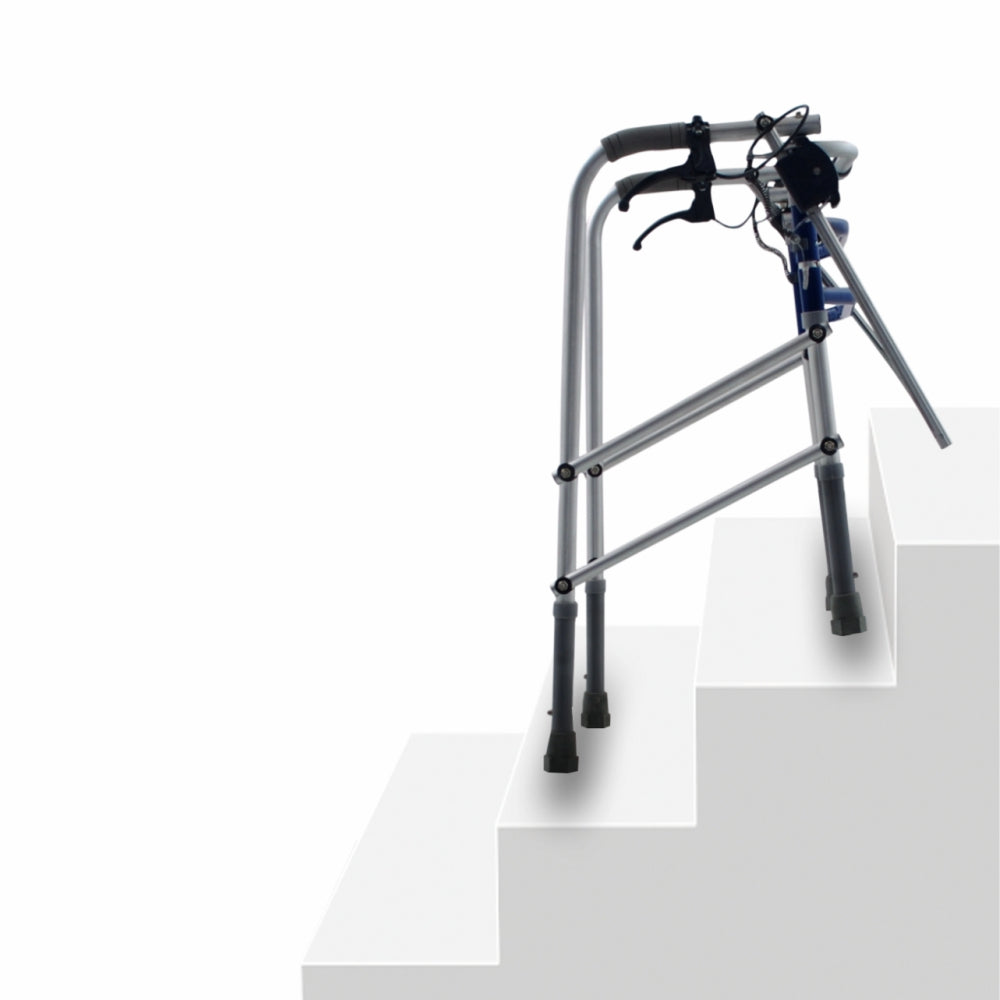"Dream, Dream, Dream! Conduct these dreams into thoughts, and then transform them into action."
- Dr. A. P. J. Abdul Kalam
"Dream, Dream, Dream! Conduct these dreams into thoughts, and then transform them into action."
- Dr. A. P. J. Abdul Kalam
15 May 2024
Choosing the stairs over the elevator has been considered sage fitness advice for years, but new research backs up this health tip. Yes, you read it correctly. A meta-analysis presented at a European Society of Cardiology conference this past weekend found that people who routinely climb stairs were 39% less likely to die from heart disease, compared to those who didn’t. They also had a lower risk of stroke and heart attack. Research presented on Sunday at ESC Preventive Cardiology 2024, a scientific congress of the European Society of Cardiology (ESC), suggests that climbing stairs is linked to a longer lifespan. According to Dr. Sophie Paddock, the study's author from the University of East Anglia and Norfolk and Norwich University Hospital Foundation Trust in Norwich, UK, "If you have the choice, go for the stairs as it will help your heart." "Even little bursts of physical activity have positive effects on health, and incorporating short stair climbing sessions into daily routines should be a realistic goal." Exercise and other such behaviors can help avoid cardiovascular disease. However, almost 40% of adults globally do not engage in the recommended amounts of physical activity.
Firstly Understanding Longevity ~
Living a longer and healthier life is what is meant to be understood as longevity. It indicates a person's expected lifespan and level of health in subsequent years. The state in which an individual lives longer than their average life expectancy is also referred to as longevity. The study of longevity in medicine also teaches us how to live longer, better lives. Its primary objective is to guarantee that we continue to live healthy, active, and productive lives as we age, in addition to extending our longevity. In what precise sense is longevity defined? How about making a few little lifestyle adjustments to extend your life expectancy? Your lifestyle decisions have a direct impact on your health and longevity in addition to hereditary and environmental influences. A well-planned physical regimen plus a nutritious diet can improve health and lengthen life. It's crucial to remember that each person is unique, so what works for you might not necessarily work for someone else.
Stair Climbing for Health ~
Research shows that moderate-intensity physical activity for 30 minutes each day is good for your health. It supports cardiovascular fitness, aids in weight control, and improves social and psychological well-being. Additionally, individuals should engage in at least 150 minutes a week of moderately intense aerobic physical activity, according to the World Health Organization. Nowadays, a lot of people claim to be "busy" and hence do not engage in regular physical activity. But you should make every effort to be more physically active for your health. Climbing stairs is one method to fit exercise into your everyday routine. Most people find it to be a practical and accessible form of exercise, particularly those who are sedentary.
Stair climbing is a low-cost and readily accessible form of exercise that provides a series of health benefits if we do it every day:
On Basis of Recent Conducted Study~ What Does It Say?

( Source: Google Images)
One useful and accessible physical activity that is sometimes disregarded is stair climbing. A study looked into the possibility that staircase climbing, as a physical activity, could lower the risk of cardiovascular disease and early mortality. The authors performed a meta-analysis after compiling the best available data on the subject. Regardless of the number of flights of stairs and the rate of ascent, studies were included. In the end, 480,479 participants from nine research were included in the study. The study cohort comprised individuals with a history of peripheral artery disease or heart attacks, as well as those in good health. Participants' ages varied from 35 to 84 years old, with women making up 53% of the group. Stair climbing was linked to a 24 percent lower risk of dying from any cause and a 39 percent lower risk of dying from cardiovascular disease when compared to not climbing steps. A lower risk of cardiovascular disease, such as heart attacks, heart failure, and stroke, has also been associated with stair climbing. "We would encourage people to incorporate stair climbing into their daily lives based on these results," Dr. Paddock stated. It is necessary to confirm our study's findings, which indicated that the advantages increased with the number of stairs ascended. Thus, use the stairs wherever you are—at work, home, or wherever.
“A journey of a thousand miles begins with a single step.”– Lao Tzu